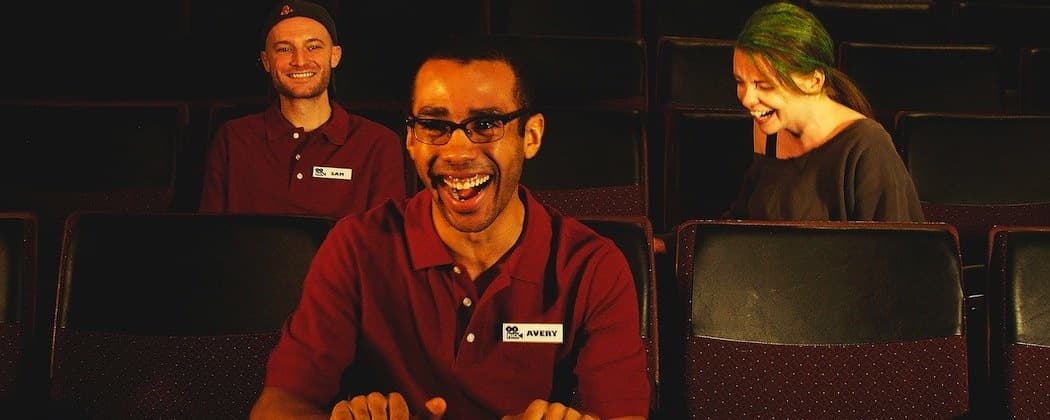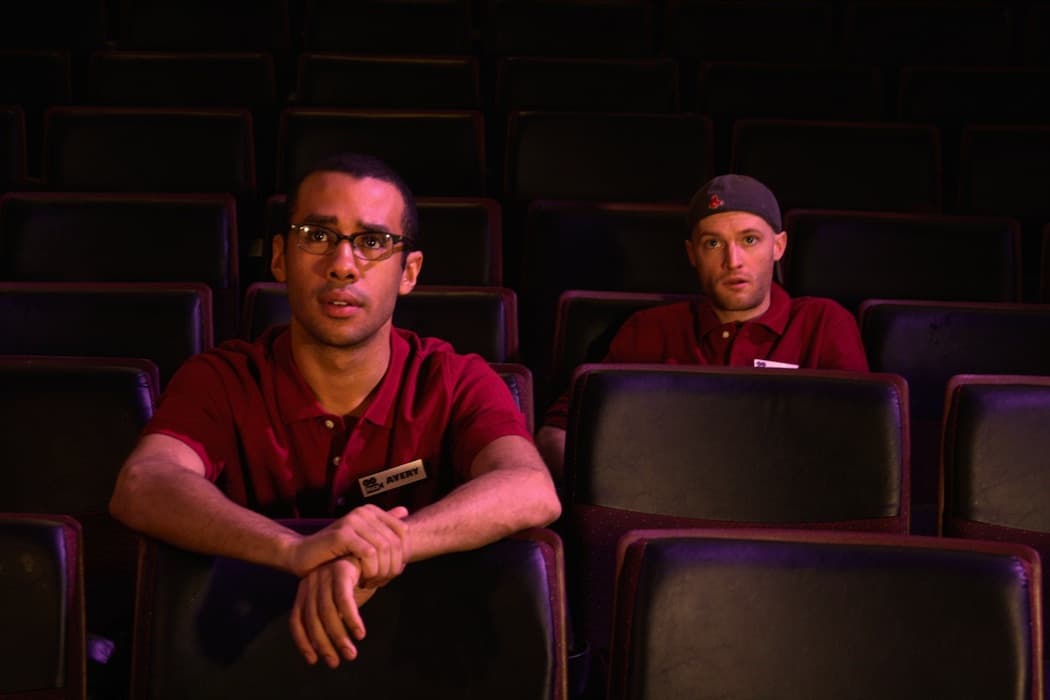Advertisement
Company One Reunites With Annie Baker For 'The Flick'

Company One has taken up temporary residence at the Modern Theatre at Suffolk University on Washington Street, which seems appropriate. The first Boston theater built to show film—and the first to screen a talkie, “The Jazz Singer,” in 1928 — the rejuvenated Modern offers a particularly apt backdrop for Annie Baker’s buzzed-about comedy-drama. The play is set in the only independent movie theater in Worcester County still showing films with a 35-millimeter film projector, at a time when all others are converting to digital.
Baker, 32, is considered one of the country’s most gifted young playwrights. Last year, she won the Steinberg Playwright “Mimi” Award for up and coming playwrights, the Susan Smith Blackburn Prize for women playwrights and her third Obie award for “The Flick,” which earned generally terrific notices last winter in its New York debut at Playwrights Horizons off Broadway.

Company One, which is dedicated to reaching diverse audiences through socially provocative performance, typically doesn’t compete for rights to produce regional premieres of hot off-Broadway properties, acknowledges co-founder and artistic director Shawn LaCount. But the 15-year-old troupe developed a relationship with Baker, he says, while they were working on the Shirley, VT Plays Festival, a 2010 collaboration among the Huntington Theatre Company, SpeakEasy Stage and Company One showcasing the playwright’s work.
“We got to know each other in and out of rehearsal rooms, and she felt like our aesthetics aligned,” recalls LaCount, who directed Baker’s “The Aliens” during the festival, and who helms “The Flick.” Baker, he notes, is a lifelong film buff who grew up in Amherst, Mass. She had started research for “The Flick,” a play that brims with influences and references to her favorite films.

“When we told her all the founders of the theater met at Clark University in Worcester, she wanted to know all about the area and the local movie theater.” A character in the play is a student at Clark, and the movie theater in “The Flick” closely resembles the Paris in Worcester, where LaCount went to movies while he was at Clark, he says. It takes its name, though, from the Lexington Flick, which was turned into the Lexington Venue.
“Annie is a writer who writes for folks she considers ‘other’” — the audiences Company One aims to reach, LaCount continues. She tells stories of lives lived in ordinary places that are seldom the sort rendered on the contemporary American stage: a community drama class; the scrubby patio behind a coffee shop in out-of-the-way Vermont; a single-screen movie theater in its last gasp in Worcester County. Baker has said that each of the three characters in “The Flick” is among “the great ‘Others’ of American cinema”— regularly stereotyped but seldom featured on screen.
Advertisement

The play opens as Avery, the newest employee at the Flick theater, is learning the house cleanup routine from Sam. An African-American son of a Clark professor, nerd, and film snob who insists that “Pulp Fiction” is the last Hollywood release of any merit (and who suffers because of that), Avery is desperately lonely. So is Sam, a 30-something Red Sox fan and lower-middle class Jew worried that he’ll be working at the movie theater for life. He’s distraught that Rose, a woman he deeply, semi-secretly adores, has been promoted to projectionist — a job he thinks he deserves. Rose, meanwhile, hides in her booth, dresses in baggy clothes and dyes her hair green, all the while yearning to be loved for her somewhat abrasive self.
A writer of “untheatrical theater,” Baker’s plays are naturalistic, nuanced and precisely observed; marked by long silences, meant to explore what is unseen and unexpressed. They can also be disorienting. In “The Flick,” for instance, the audience sits and watches the three-hour play from the vantage point of the movie screen.
“You are where the screen usually is,” looking at the seats and a projection booth, says LaCount. “All of the action of the play is them cleaning the movie theater and conversing.” But in a play that ponders authenticity and adaptation, performed in a beautiful old movie house that’s adapted to change, says the director, what the characters do “feels musical and rhythmic. I think it’s kind of a dance.”
___
“The Flick” begins previews tonight at the Modern Theatre, opens Saturday night and runs through March 15.
A former Boston Globe arts reporter, Maureen Dezell is the author of the critically acclaimed “Irish America: Coming Into Clover,” and a senior editor at Boston College. Her website is maureendezell.com.